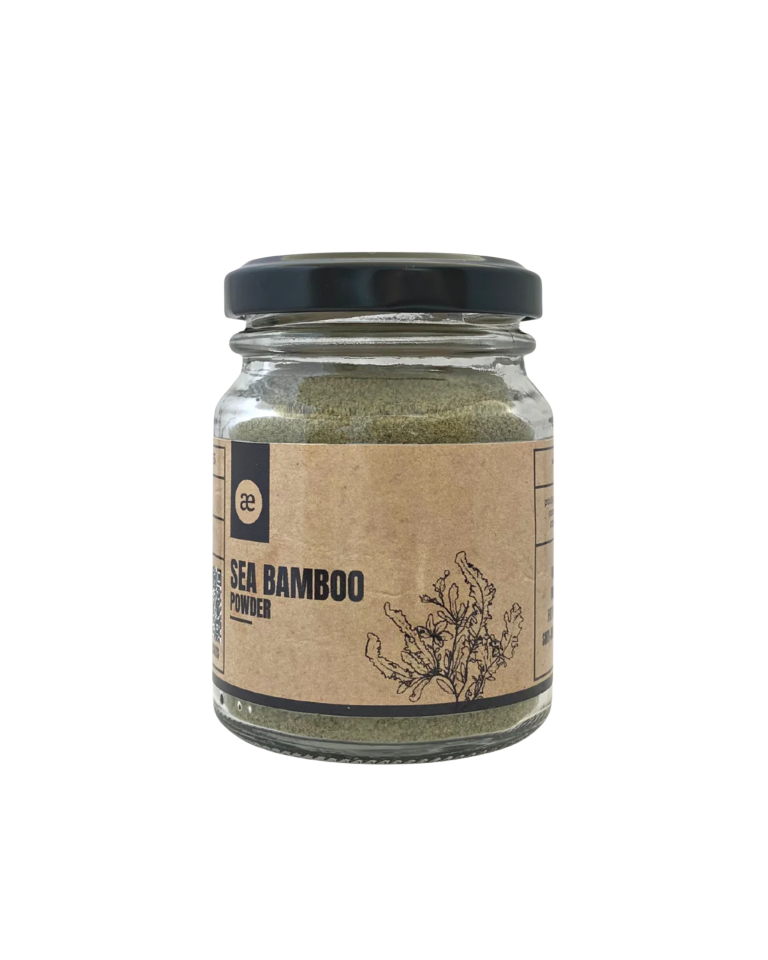Description
Kelp is a brown algae that grows in colder waters, they make up large underwater forests. These organisms require nutrient-rich water to thrive, which spikes their growth rates-some species growing as fast as half a meter a day, ultimately reaching between 30 to 80 meters. This high growth rate and nutrient density makes kelp a great source of food, and medicine for those lacking vital compounds needed for everyday life.
In Europe, Mediterranean seaweeds were used as medicine between 509 BC – AD 395 by the Greeks and Roman. This versatile algae also found a place as a feed to animals around this time and some red algae were used as sources of dying agents.
The Kelp that we favour grows right off our coast, the Ecklonia maxima or sea bamboo. This type of kelp is highly nutritious since it preferentially bio-accumulates all the essential plant- nutrients that circulate in the ocean, rejecting the contaminants. South African kelp is possibly the last pure kelp-beds in the world, as they are fed by the clean Benguela cold water currents, which flow northwards up the West coast of southern Africa from the pristine ice continent of Antarctica.
Clean kelp offers one of the most complete range of natural minerals of any food source on earth, containing all the important minerals needed for life, including-calcium, iron, magnesium, manganese, phosphorus, potassium, sodium, sulphur, zinc, and the highest food source of iodine ( over 50% of the world population is iodine deficient )
Kelp also contains vitamins A, B’s, C, D, E, K, & folic acid, pantothenate and niacin as well as fatty acids, Omega 3 ( ala, as well as small amounts of DHA ) and 17 different amino acids. This great superfood is also excellent for the brain-for brain tissue, surrounding membranes, sensory nerves & the spinal cord.



Reviews
There are no reviews yet.